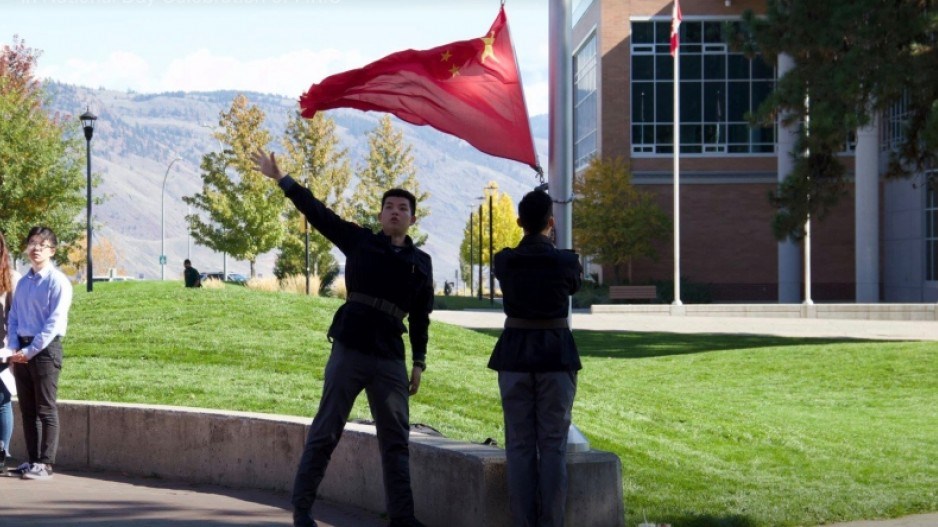Canada faces security threats from China, Russia and other unnamed countries seeking to interfere with government, media and social organizations, says a new report from a parliamentary intelligence committee.
However, security and intelligence agencies’ ability to respond to foreign threats are diminishing as resources are diverted elsewhere, criminal technology becomes more sophisticated and experienced investigators leave.
Such states use deception to cultivate relationships with federal, provincial, municipal and aboriginal politicians officials and others with perceived influence in the political process, said the National Security and Intelligence Committee of Parliamentarians annual report released late last week.
Foreign interference activities threaten the fundamental building blocks of Canada's democracy, the report said, referencing Charter rights and freedoms.
The primary means through which that’s done is targeting and manipulation of ethnocultural communities to influence decision-making at all levels of government, it said.
“Some individuals willingly act as agents of a foreign power for a variety of reasons including patriotism or the expectation of reciprocal favours. These states also co-opt individuals inside and outside of ethnocultural communities through flattery, bribery, threats and manipulation.”
Furthering problems is federal, provincial, municipal or aboriginal politicians or officials who may be furthering the interests of malicious states.
“While the majority of elected and appointed officials conduct their business with genuine integrity, some are wittingly or unwittingly subject to foreign interference activities, jeopardizing the integrity of Canada's system of government,” the report said. “Foreign interference activities are targeted at three key areas: the electoral process at all stages; elected officials and their staff; and sub-national areas of government.”
But, the ability of Canadians to know where threats originate or what they look like is constrained as the report itself has multiple redactions, most seemingly referencing foreign state interference in Canada. The names of states besides China and Russia were also removed.
So too were methods used by states to manipulate Canadian mainstream and ethnic media.
“[China] has several state-owned media outlets that operate in Canada including Xinhua News, People's Daily and the China News Service,” the report said. “[China] is seeking to ‘harmonize’ international Chinese-language media with its own by attempting to merge the editorial boards of those outlets with [Chinese] media. This would result in [China] controlling the message in Chinese-language media, thereby undermining the free and independent media in Canada.”
In New Zealand, the report said, such control has resulted in a “form of” Chinese supervision.’”
China uses “its growing economic wealth to mobilize interference operations: "With deep coffers and the help of Western enablers, the Chinese Communist Party uses money, rather than Communist ideology, as a powerful source of influence, creating parasitic relationships of long-term dependence,” the report said.
Further, it can compel Chinese nationals and companies to do its bidding under its National Intelligence Law.
Educational institutions are also at risk from Chinese interference, the committee found. It cautioned of Chinese Students and Scholars Associations, which have been mobilized in the U.S. to protest events showing China in a negative light.
Such associations have already come under scrutiny in Canada at places such as Kamloops Thompson Rivers University.
It also warned of Confucius Institutes in high schools.
The U.S. Committee on Homeland Security and Governmental Affairs has said the institutes, which show China in only a positive light, can compromise academic freedoms
Russia, the committee said, engages in foreign interference activities across Canada's political system to influence government decision-making and swaying public opinion.
“Some of Russia's intelligence officers under diplomatic cover have engaged in threat-related activities,” the report said. “The nature and extent of Russia's foreign interference threat is significant as these activities form a key component of the broader national security threat posed by Russia.”
A problem Canada has, however, is the shifting of resources away from security and loss of experienced officials.
“The ability of police and intelligence organizations to obtain information under existing legal authorities has steadily diminished with the evolution of information technology, eroding those organizations' ability to investigate and disrupt or prosecute criminal and security threats,” chair MP David Mutiny said.
McGuinty said the committee faced challenges in assessing how Canada’s security system works due to problems with the very agencies it sought to assess.
“Some organizations provided summaries of information requested rather than the original records, inconsistently applied the restriction of information subject to Cabinet Confidences or failed to provide records that the Committee considered relevant to its reviews,” the report said.
Committee work focused on the Canada Border Services Agency; CSIS; the Communications Security Establishment; the Department of National Defence and the Canadian Armed Forces; Global Affairs Canada; the Integrated Terrorism Assessment Centre; the Privy Council Office; Public Safety Canada; and the RCMP.
@jhainswo




